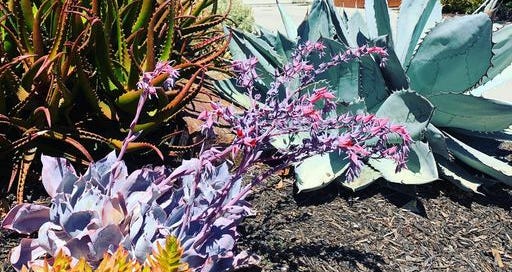This summer has been full of moving boxes. My husband has taken a pastoral call to a church on the central coast of California, just a few hundred miles from where we grew up, in a college town and with a sweet and welcoming congregation. But it has meant re-planting: new schedules, new schools for our four children, new friends, new ministry, new walking paths. And like many things in the life of a writer and thinker, I find that my actual walks, my actual moves, lead to questions beyond the literal paths I walk: they lead to questions about church, institutional and emotional health in the era we find ourselves in.
Picking up Bittersweet, the new book out by Susan Cain, she writes of a capacity to hold things in tension — both sorrow and joy, bitterness and sweetness — and that it’s often unique to highly sensitive folks, people who sense “the tragedy of life is linked inexplicably with its splendor.” It’s the sort of thing that C.S. Lewis writes about when he writes about glory, that we want to merge ourselves with it, get it inside ourselves and yet we find ourselves always on the outside of some door. And what we’re left with is longing. We feel this bittersweetness acutely. Loss and longing. Sorrow and joy. Contentment even as we itch to be somewhere else.
It’s something I know deeply. Yet there’s a surprise here too; as friends have asked us how we’re settling in to this new place, I answer: remarkably well, especially given the enormity of another move so close upon the heels of another one. Often transition and change puts me into a tailspin, a sort of visceral reaction of highly sensitive people to feel most things rather deeply. So I suppose it’s odd that this move has felt, well…normal and good and right. I expected this deep longing, this deep ambivalence, this deep sense of being out of place in the world. I expected to feel nothing but bittersweet.
What has changed in me? What has changed in this moment in time? And could it be that as one ages, there is a resilience that’s grown alongside the bitter and the sweet?
These experiences of mine simply point to the deeper questions: What makes a person or a people resilient? Can we feel both deep longing and be content when things feel quite settled? How does resilience grow?
How do we grow resilience?
In my daily walks around my new neighborhood, I’m struck by the colors of the drought-resistant succulents. They’re icy blue, yellow, and pink. It’s as if the harsh conditions has made them more colorful, more playful than the basil in my kitchen window that requires a quarter inch of water each day to keep thriving. What makes plants resilient?
Part of the growth of resilience is that the plant fits the environment: these succulents are made for the place they’re in. (And in many ways, this move to the central coast seems to be the soil where our family will thrive, given where we’ve come from and where we’re headed). The conditions this plant requires the soil and weather provide. Some resilience is borne from a match between plant and ecosystem.
Some resilience is due to the plant itself. Some plants might not need much; they’re easily transplanted. They survive on less water than other species. They don’t need constant attention. They’re less fussy. Some capacity for resilience is innate.
Resilience, too, is born from community. Whether it’s the deep, underground roots that communicate with other trees, or the giant groves of Aspen trees that are really one tree (!), the natural world reminds us that we rise and fall together. That as much as we’d like to go it alone, we were created for community; we depend on each other to survive. In the Christian world in which I live, it is the weekly saying of the liturgy, the weekly prayers, the eating together over meals and feasting at the Lord’s Table, that build and strengthen our root system. We need one another to survive.
What other factors do you see in yourself, your community or church that contribute to resilience? Share in the comments.
___
In case you missed it:
Mark Sayers on cultural anxiety (Finding Holy Episode 126)
Makoto Fujimura on art and faith (Finding Holy Episode 125)
Austin Carty on reading as formation (Finding Holy Episode 124)
Ashley’s most recent book, A Spacious Life is in paperback, ebook and audio. You can find out more about her work and speaking at aahales.com.





Resilience requires a transfer of TRUST….from self to God. Adjusting to new surroundings requires FAITH that God, as your creator with ownership rights, has directed you there and planted you in the right garden. Your trust is evident Ashley!!!!
Love this Ashley! That pic! Just wild colors, bursting w resilience.